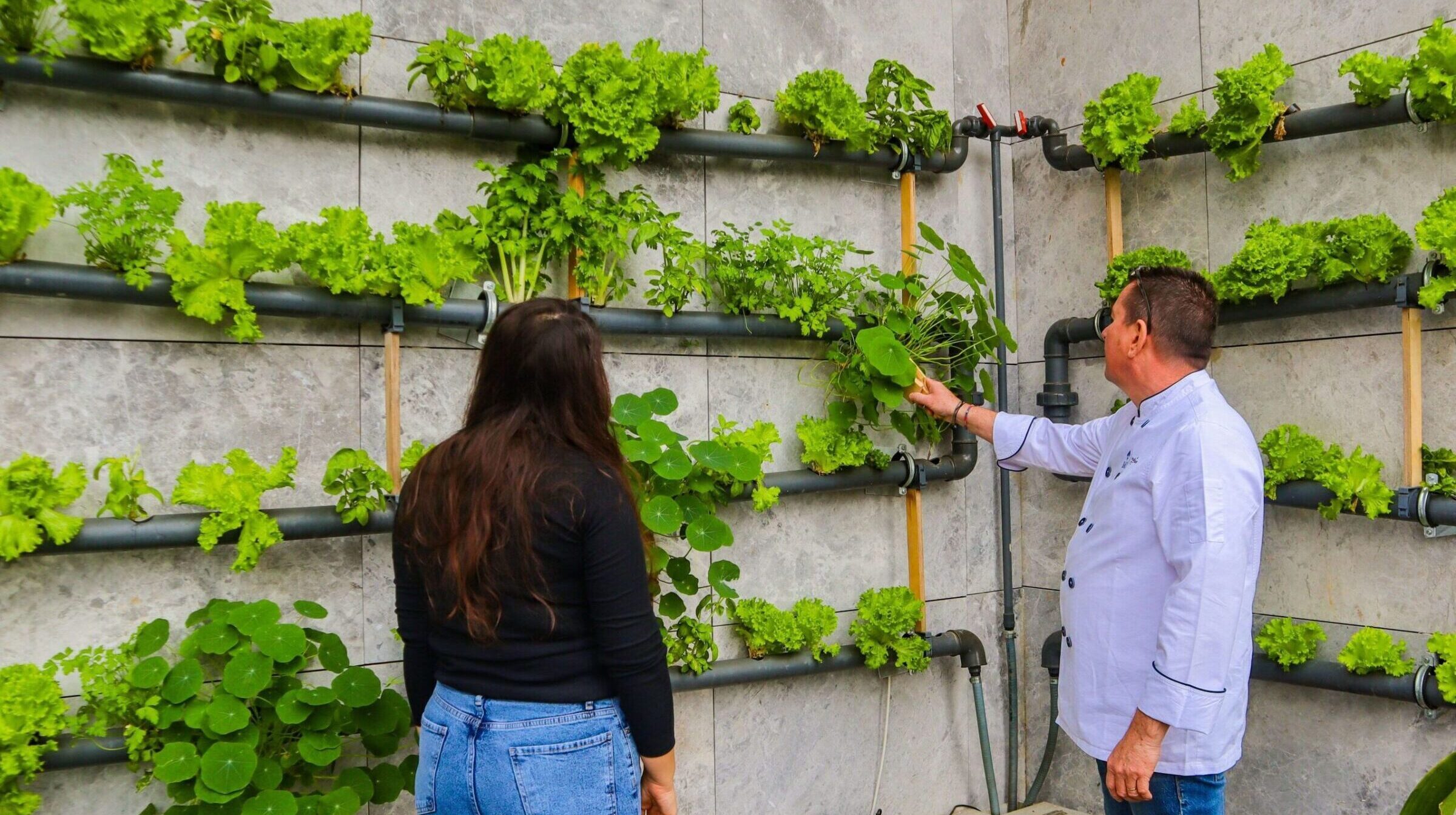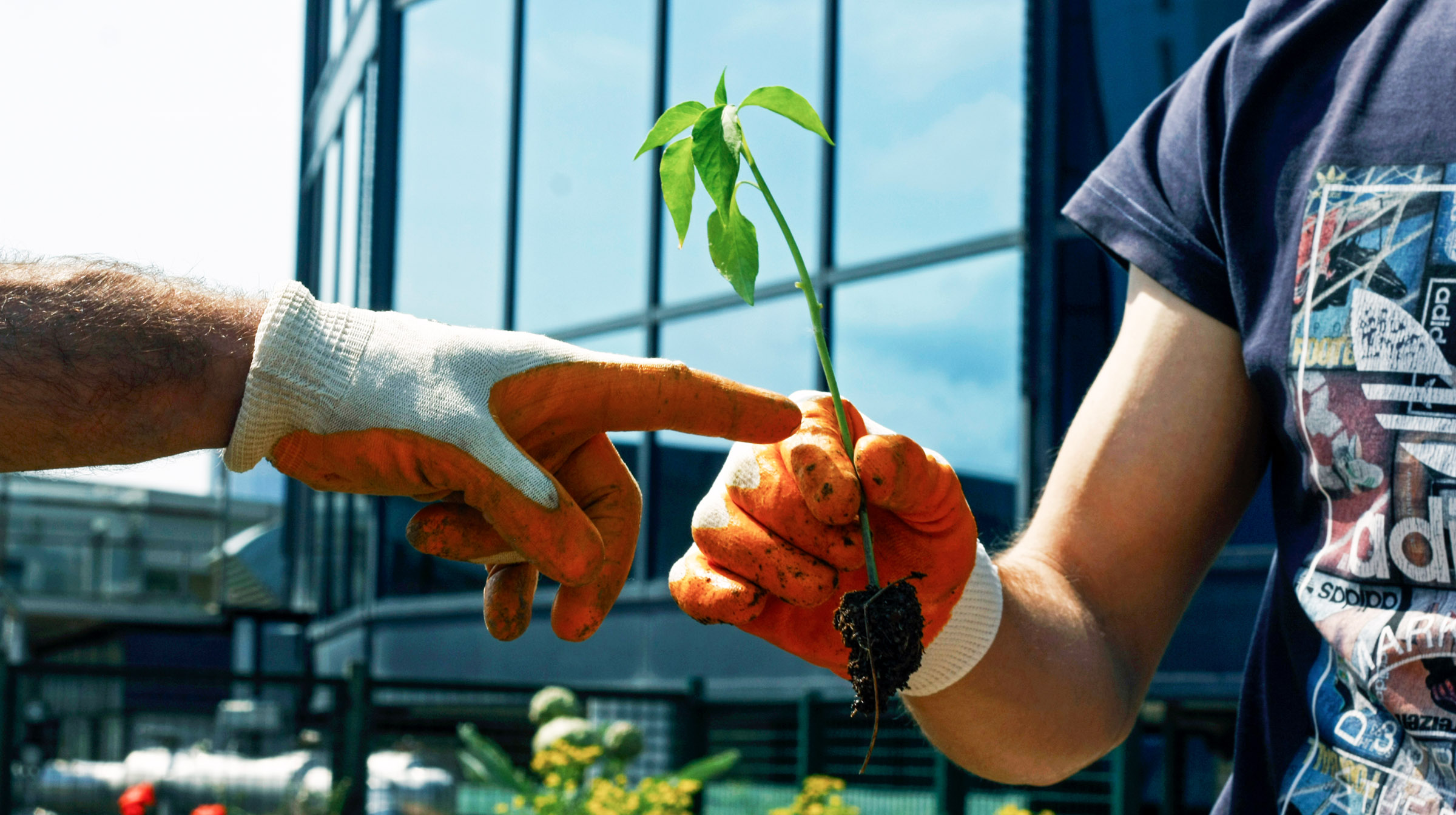Our team comes from very diverse academic backgrounds; among us, there are artists, scientists, engineers, chefs, farmers, designers, accountants, and more. And yet, we wonder how come we all missed the class about the very basic knowledge we need for our survival: How to grow our food, how to manage our waste, how to protect and promote ecosystems that allow us to stay healthy and happy.
Our goal is to fill this gap. While designed for gastronomy departments, our semester-long courses can be easily adapted to accompany many different fields of study to provide students a different and, in our opinion, quite vital perspective on how to think about their future profession. These courses that combine theory with practice can take place in one of our urban farms or in a farm on campus, which we would happily design, build, and maintain for the educational institution with discounted academic pricing.
With Corporate Sustainability Reporting Directive (CSRD), EU regulation now mandates large corporations to report on sustainability metrics, including environmental sustainability. Companies that are governed with the aim of maximizing stakeholder welfare–and not just shareholder wealth–will have an easier job complying with those reporting requirements. We believe that the ones that actually internalize social equity and environmental sustainability goals will be in the best position to turn those requirements into opportunities.
We offer workshops that are designed to raise awareness on key issues relating to environmental sustainability while giving corporate employees practical skills in enhancing their quality of life in the urban environment. We also happily advise corporations on how to utilize available spaces and resources to become part of the solution for the climate crisis we are facing.
Our workshops are based on our experience accumulated over the past eight years running indoor and outdoor urban farms of various scales, and serving farm-to-bowl food in our eateries with a zero-waste mission. While we still keep experimenting and learning, we also are more than happy to share our know-how. It is clear to us that our dream of leading a healthy, enjoyable, and sustainable life in our big city can only come true when a large enough portion of our fellow residents here starts making informed and deliberate choices every day…
Kids are our responsibility and our hope! We as their parents and grandparents have created a lot of problems for them. Now our responsibility is to encourage them to figure out how to deal with those problems, and hope that they somehow will. The good news is that kids are inherently curious and quick-learners. What we would like to do is to tickle their interest in the relevant topics. We would like them to see that when they understand nature and work with it, rather than against it, they can come up with ingenious solutions for many of their (and our) problems.
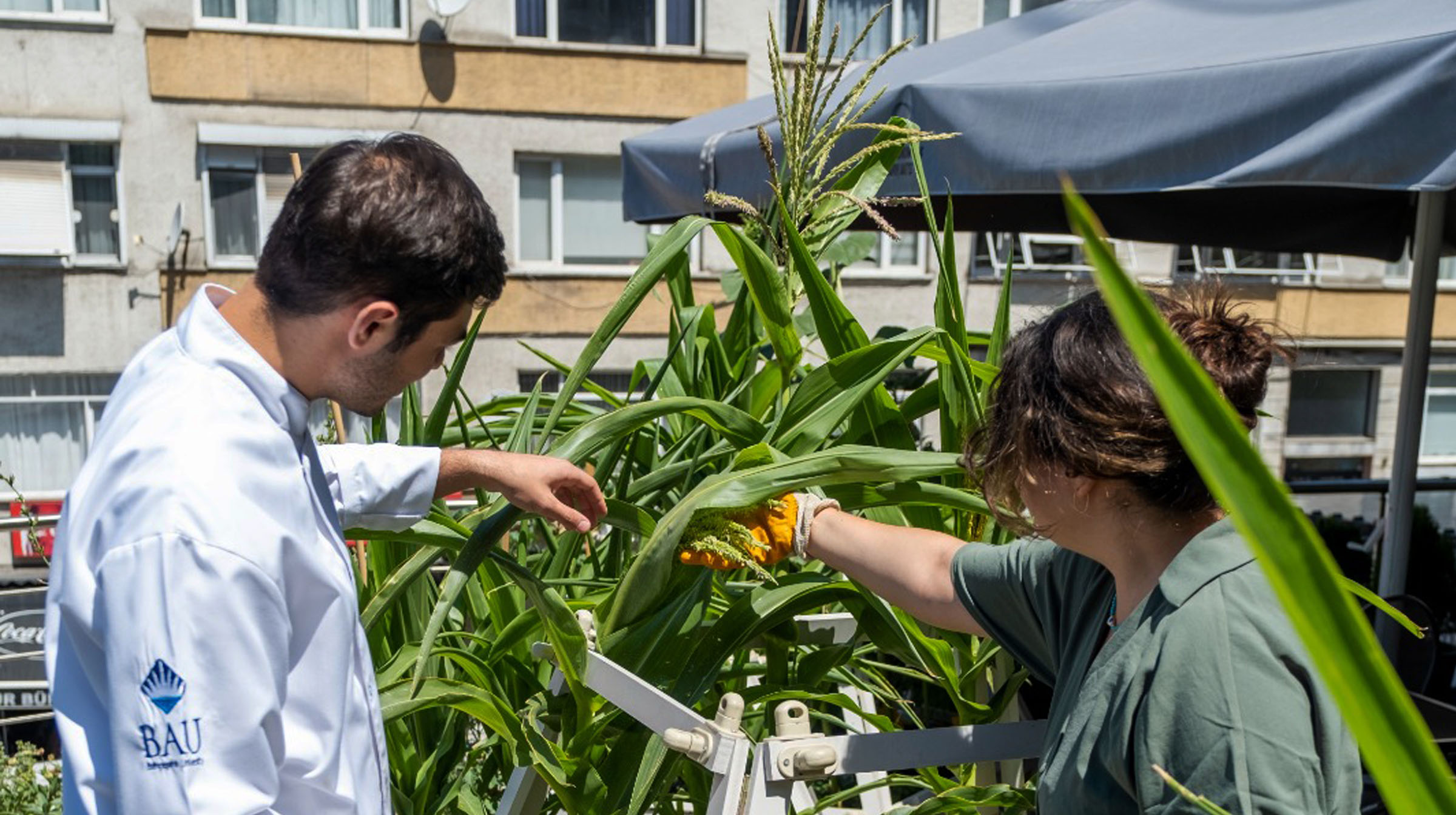
Urban Farming for Future Chefs
This course emphasizes the benefits of local, organic and sustainably-produced food on the wellbeing of individuals, communities, and our planet.
Future chefs will have to know much more about the ingredients they are using than how to procure, prepare, cook, and plate them. Society's expectations of food's "quality" is evolving, and it now includes questions about how local it is, whether it is organic, and how sustainably it was produced.
By teaching future chefs how to grow food, we aim to have them think about some critical issues when creating a menu, and equip them to ask the right questions when sourcing ingredients. We also teach techniques to reduce waste, but our hope is that the biggest gain on that front would come from the appreciation of what it takes to grow our food locally, organically, and sustainably.
⬟ 14-weeks theory + practice
⬟ face-to-face
⬟ with access to an urban farm
⬟ designed for Gastronomy and Culinary Arts Departments of academic institutions
⬟ Climate crisis
⬟ x Rs of sustainable living
⬟ Introduction to permaculture
⬟ Food forests
⬟ Urban farming
⬟ Composting and relationship to fermentation
⬟ Aquaponic and hydroponic systems
⬟ Vertical farming in the city
⬟ Plant life cycle
⬟ Seeds
⬟ Growing a seedling
⬟ Companion planting
⬟ Starting and maintaining a Chef’s garden
⬟ “Zero-waste” kitchen
⬟ Sustainable restaurant project
This course aims to provide:
⬟ the awareness to make well-informed choices for a more sustainable life in the city;
⬟ the know-how for starting and maintaining a Chef’s garden; and
⬟ the motivation & inspiration to become a leader in including permaculture principles in a professional kitchen.
Bahçeşehir University Gastronomy and Culinary Arts
Bilgi Gastronomy and Culinary Art: Urban Farming Training for Chefs
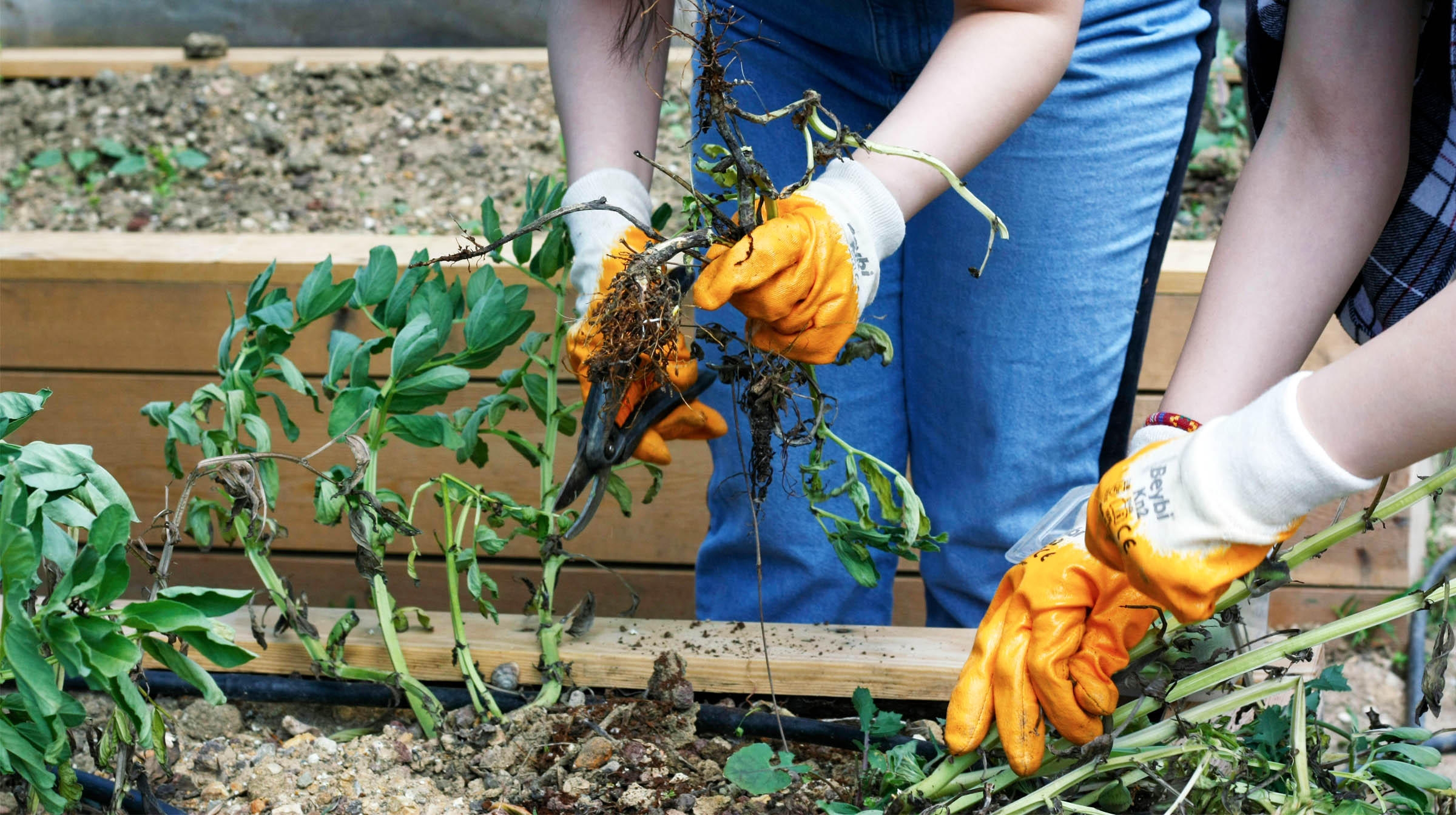
Urban Farming for Future Astronauts
This course emphasizes the benefits of local, organic and sustainably-produced food on the wellbeing of individuals, communities, and planets.
Urban farming provides a growing employment opportunity to anyone studying agriculture, architecture, design, engineering, natural sciences, or business as it relies on multi-disciplinary teams to create and implement viable solutions. With emphasis on different aspects of the curriculum depending on the student body, this course aims to provide an answer to why we would want to, and how we could manage to grow food in urban environments. With specific examples, students will see how their chosen field is relevant to solving issues related to environmental sustainability and quality of life in big cities.
⬟ 8-14 week theory + practice
⬟ face to face
⬟ with access to an urban farm
⬟ customizable for Agriculture, Architecture, Design, Engineering, Science, and Business Departments of academic institutions
⬟ Climate crisis
⬟ x Rs of sustainable living
⬟ Introduction to permaculture
⬟ Food forests
⬟ Urban farming
⬟ Making compost
⬟ Harvesting rainwater
⬟ Aquaponic and hydroponic systems
⬟ Vertical farming in the city
⬟ Plant life cycle
⬟ Seeds
⬟ Growing a seedling
⬟ Companion planting
⬟ Maintaining an urban farm
⬟ Permaculture project related to field of study
This course aims to provide:
⬟ the know-how for starting to grow food in the city;
⬟ the awareness to make well-informed choices for a more sustainable life in the city; and
⬟ the motivation & inspiration to include permaculture principles in the chosen profession of the participants.
Uluslararası Servis ve Lezzet Akademisi
Bilgi Üniversitesi Gastronomi ve Mutfak Sanatları Bölümü






Spending a few hours a week on an urban farm, and learning about permaculture while watching seedlings grow and food waste turn into compost is a mind expanding experience.
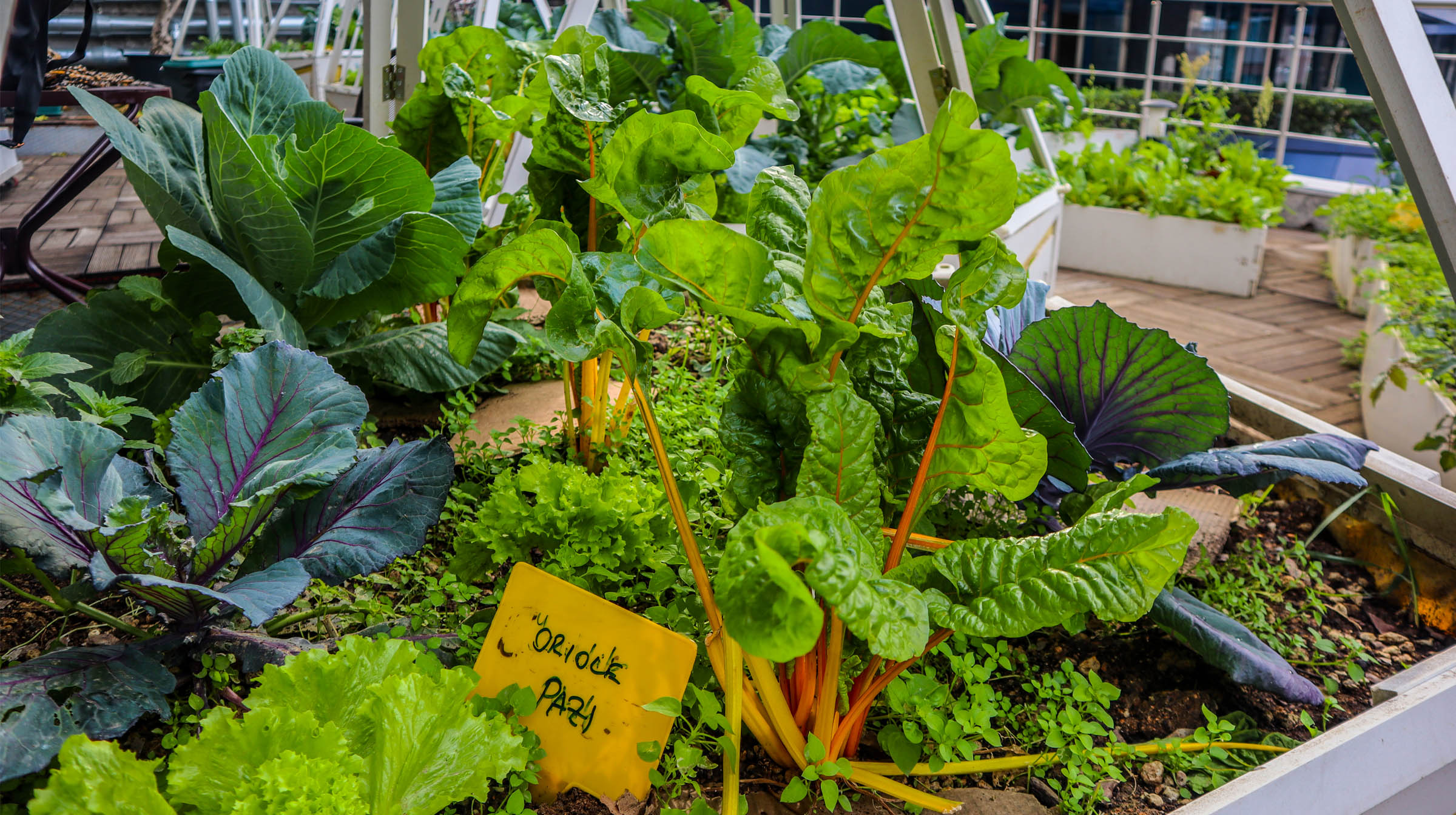
Urban Farming & Rural Eating
This is a condensed course on how we can improve our relationship with food while living in a big city. The basic idea is growing food in the urban setting while consuming it as if we are in a rural area not contaminated by industrial farming and flooded with highly processed products.
⬟ 2 days, total of 12 hours
⬟ In person, theory + practıce
⬟ Maximum 12 participants
⬟ Fee: 18,000 TL + VAT
⬟ Lunch and refreshments for 2 days: 360 TL/pp + VAT
⬟ Food forests
⬟ Introduction to permaculture
⬟ Capturing energy
⬟ Making compost
⬟ Harvesting rainwater
⬟ Urban farming
⬟ Aquaponic and hydroponic systems
⬟ Vertical farming in the city
⬟ Plant life cycle
⬟ Seeds
⬟ Growing a seedling
⬟ Companion planting
⬟ Maintaining an urban farm
⬟ x Rs of sustainable living
⬟ Zero-waste kitchen
Sürdürülebilir Yaşam Film Festivali Yan Etkinlik 2022
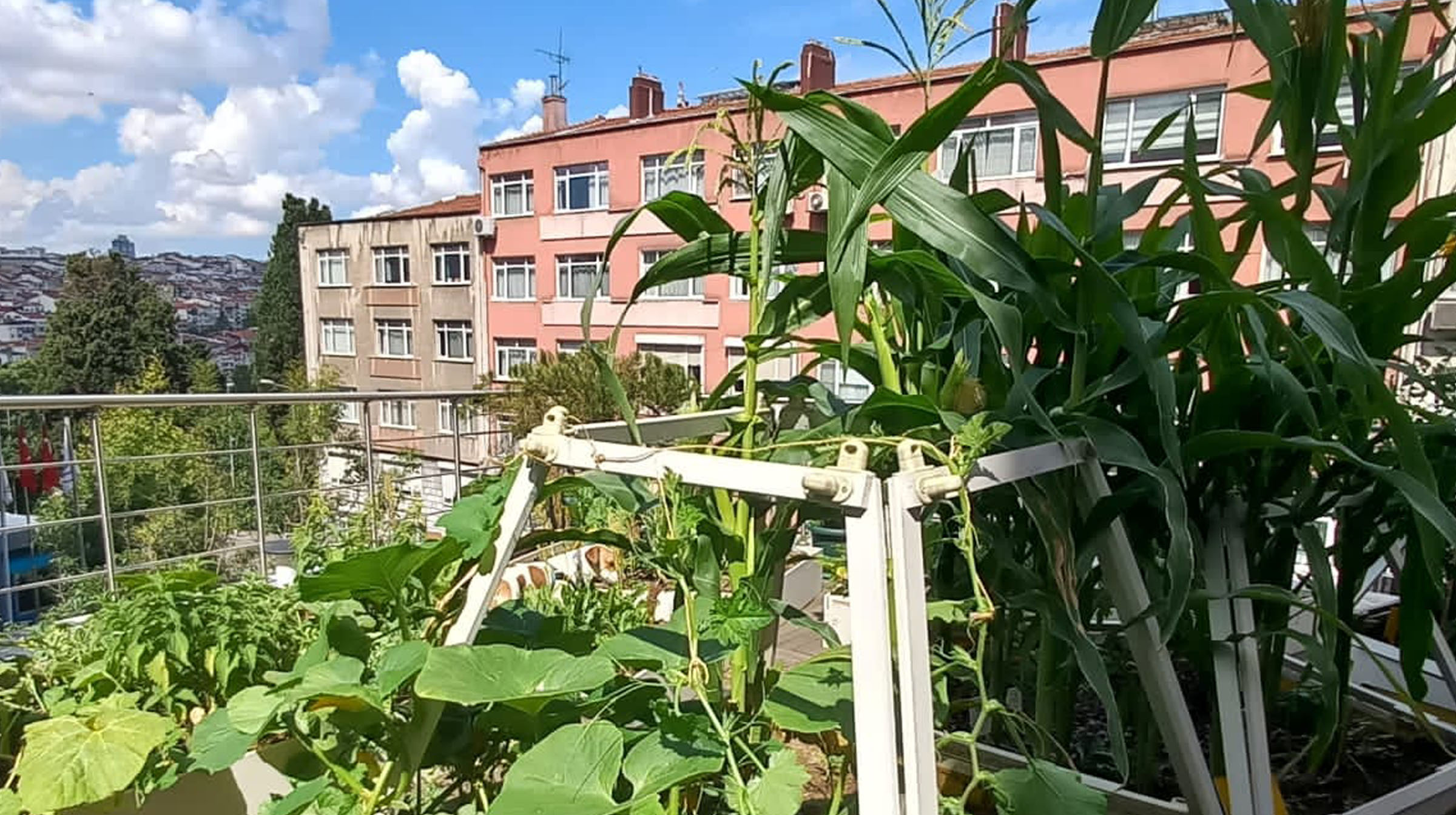
Urban Farming & Rural Eating:
Introduction to Permaculture
⬟ 3 hours
⬟ In person, theory + practıce
⬟ Maximum 12 participants
⬟ Fee: 4,800TL + VAT
⬟ Slice analysis
⬟ Zone analysis
⬟ Sister (companion) plants
⬟ Raised vegetable beds
⬟ Medicinal herb spiral
Implementation: We make an analysis on EBYİ Backyard. Participants design the area in groups with permaculture principles. Groups share their designs with each other.
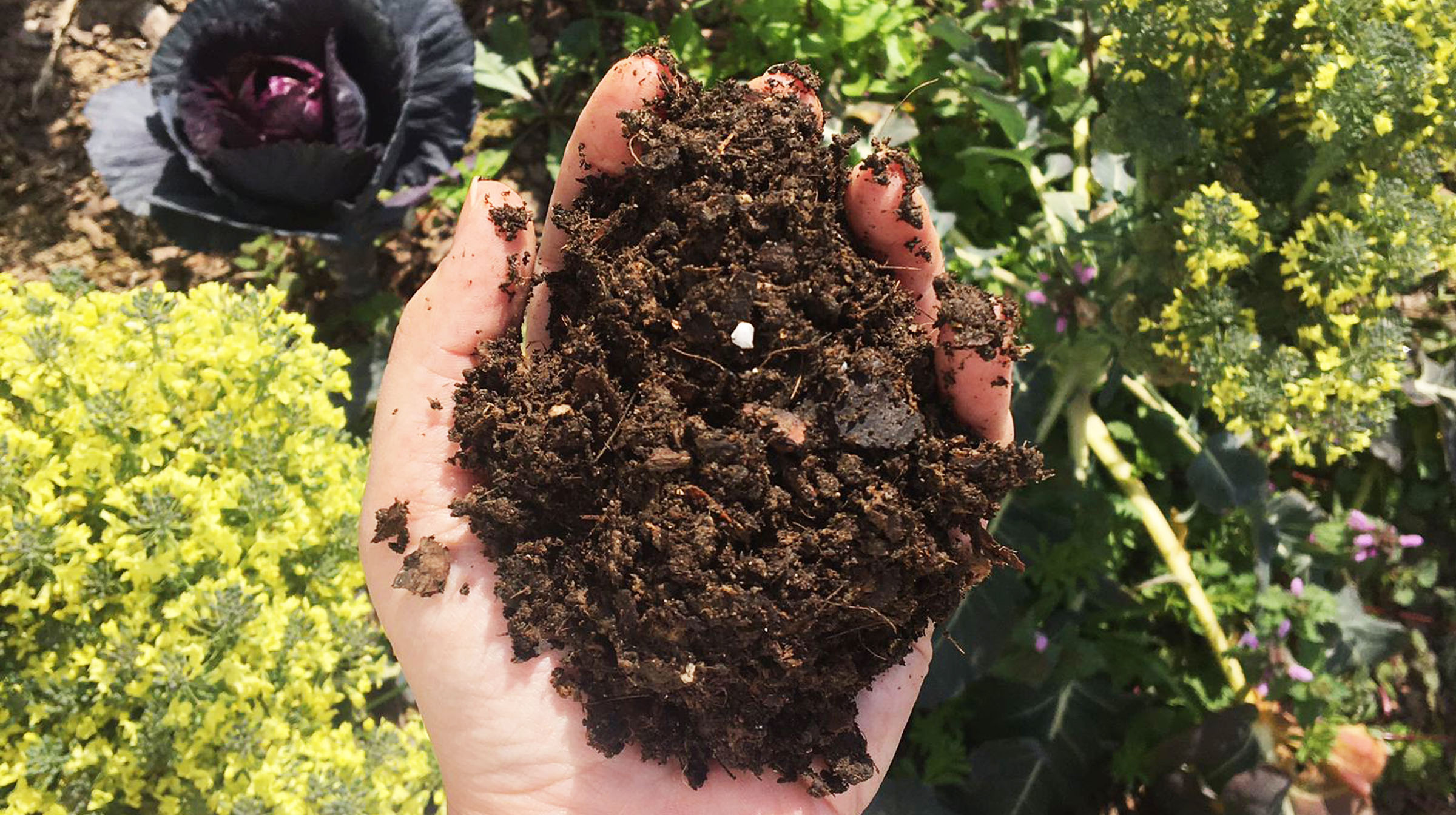
Urban Farming & Rural Eating:
Soil and Compost
⬟ 2 hours
⬟ In person, theory + practıce
⬟ Maximum 12 participants
⬟ Fee: 3,200TL + VAT
⬟ Soil food web
⬟ Soil components
⬟ Organic matter
⬟ Mulch
⬟ What is compost?
⬟ Types of compost
Implementation: Cold compost and bokashi compost.
Kanyon Avm
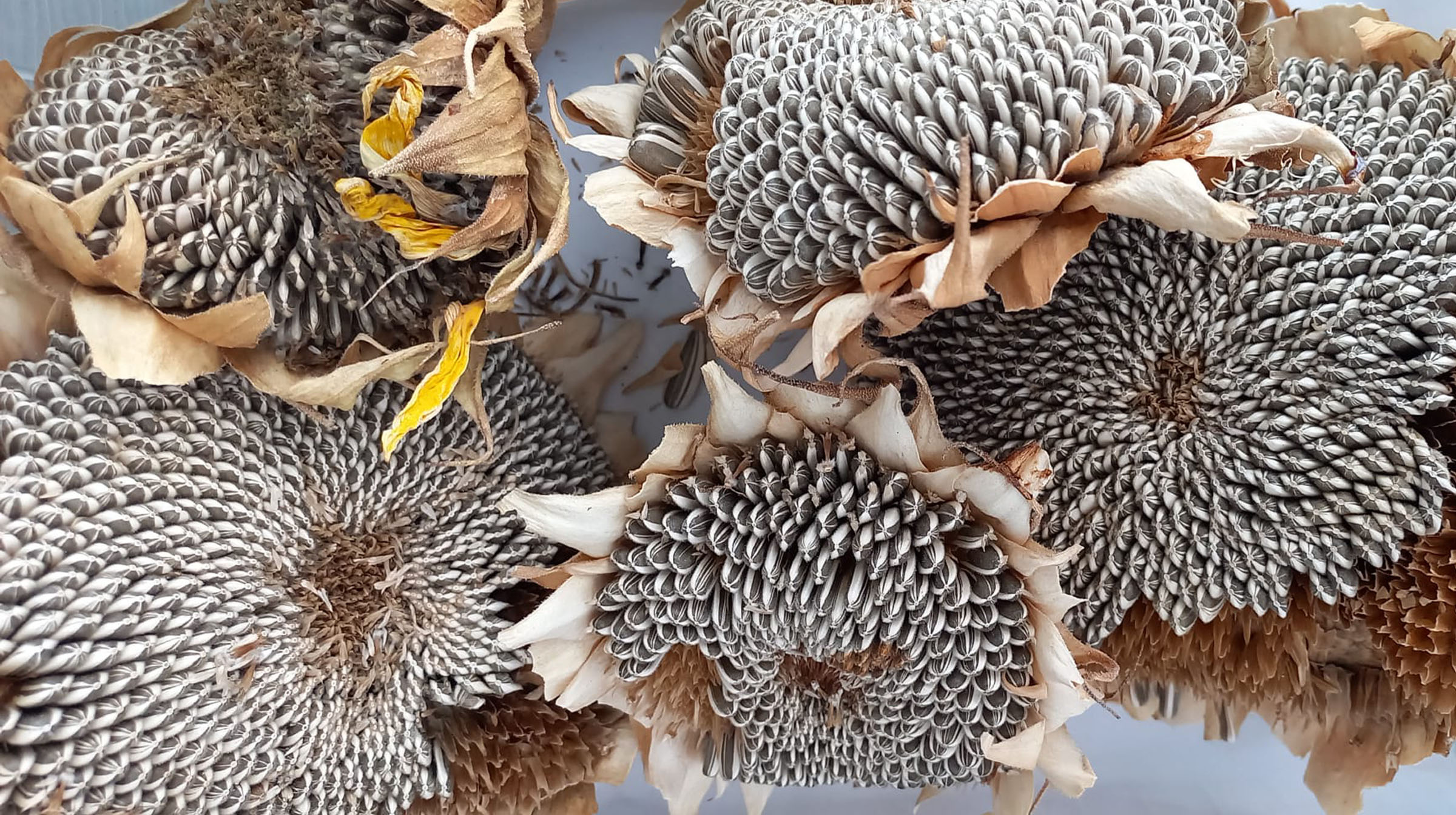
Urban Farming & Rural Eating:
Seeds
⬟ 90 minutes
⬟ In person, theory + practıce
⬟ Maximum 12 participants
⬟ Fee: 2,400TL + VAT
⬟ A closer look to seeds
⬟ Plant life cycle
⬟ Sowing seeds
⬟ Germination
⬟ Planting seedlings
⬟ Saving seeds
⬟ Seed storage
Implementation: We will be sowing seeds, and planting seedlings. Participants will take home their seedlings as well as additional seeds for home growing.
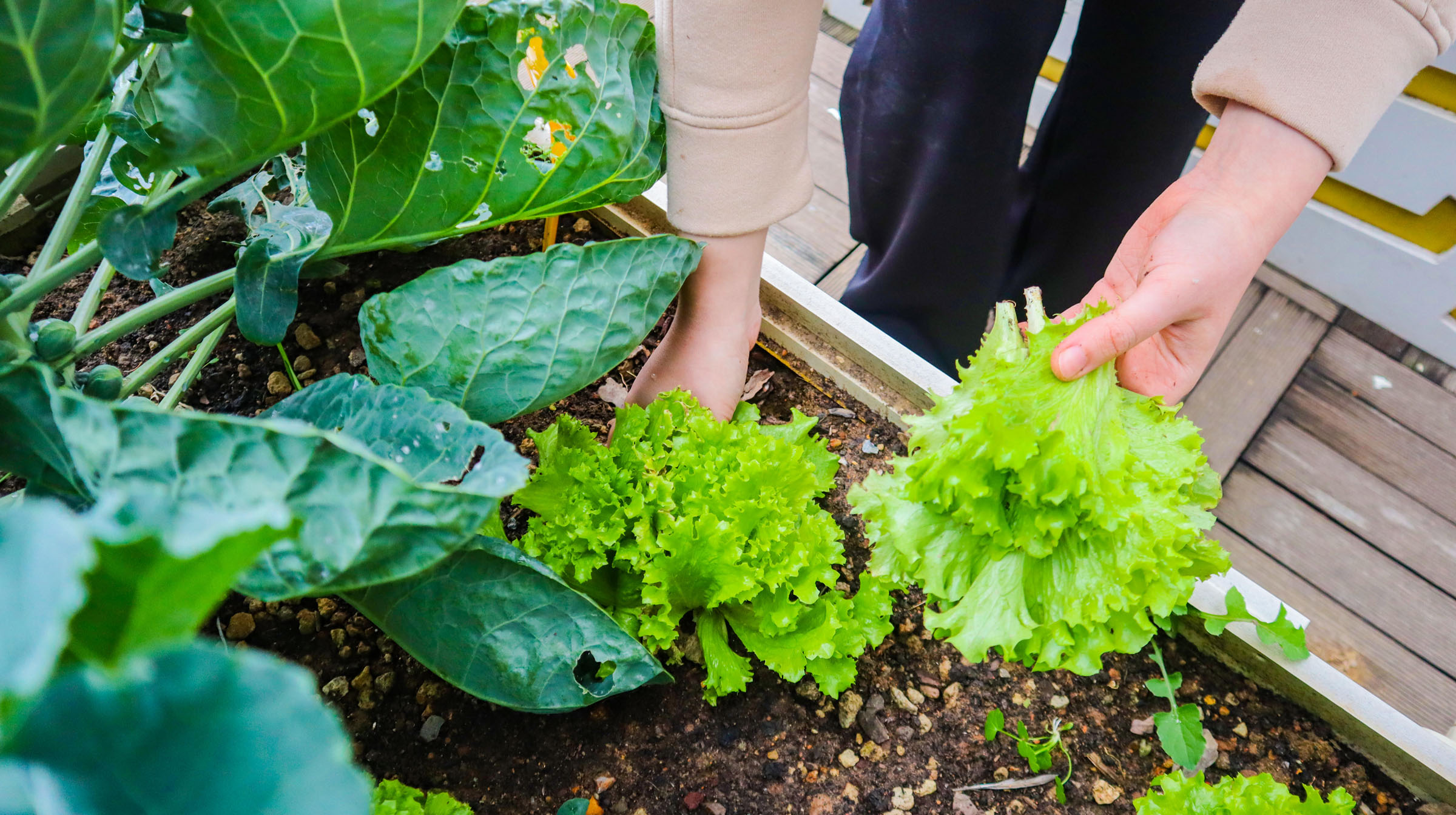
Urban Farming & Rural Eating:
Window Farm
⬟ 90 minutes
⬟ In person, theory + practıce
⬟ Maximum 12 participants
⬟ Fee: 2,400TL + VAT + Materials
⬟ Food forests
⬟ Evaluation of small areas
⬟ Balcony and terrace gardening
⬟ Vertical farming
⬟ Companion planting
⬟ Elements for growing healthy plants
⬟ Natural remedies
Implementation: We will create a window farm using the idea of companion planting. We will prepare natural remedies for common plant diseases and pests.
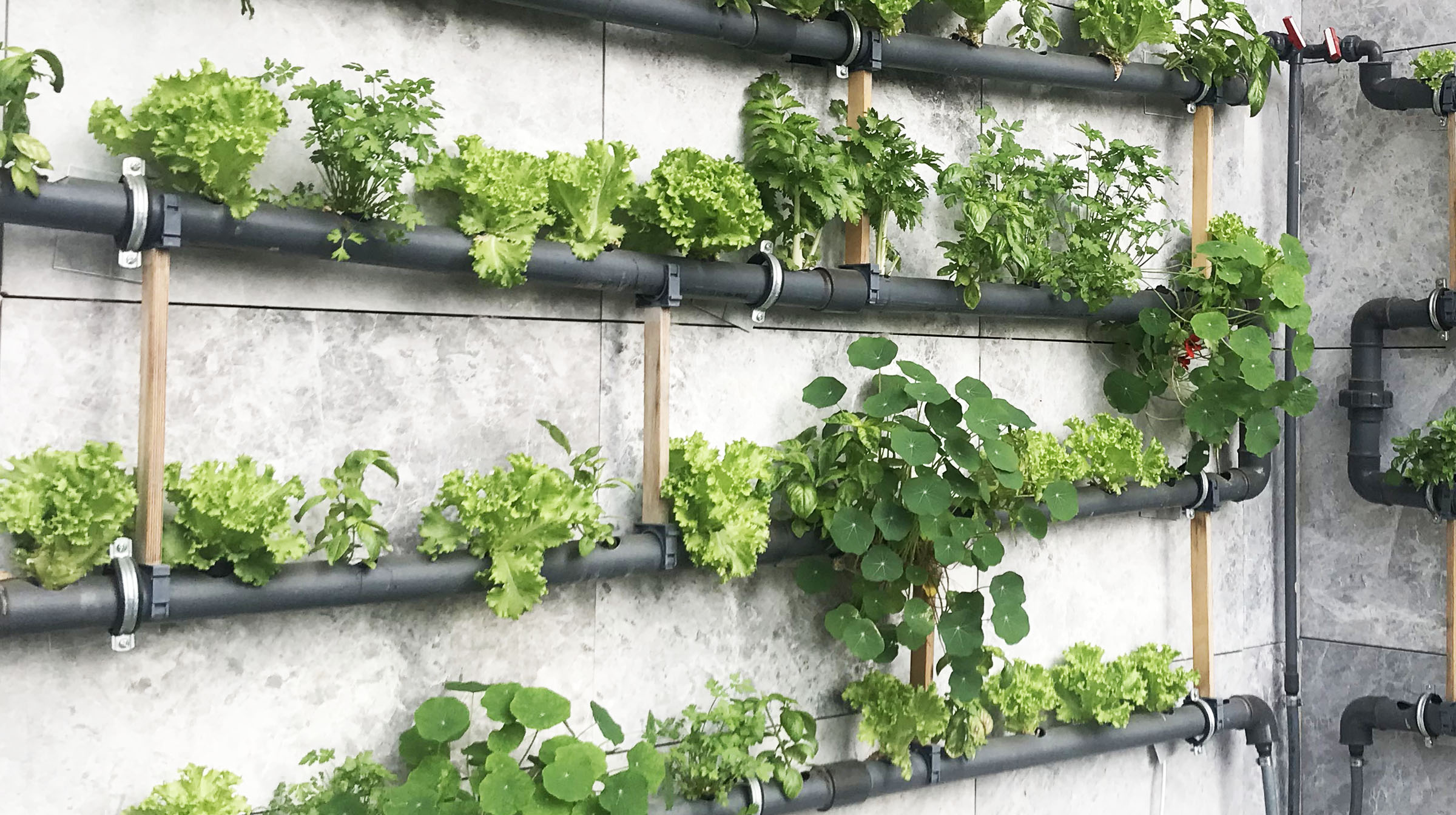
Urban Farming & Rural Eating:
Hydroponic and Aquaponic Systems
⬟ 3 hours
⬟ In person, theory + practıce
⬟ Maximum 12 participants
⬟ Fee: 4,800TL + VAT
⬟ Introduction to aquaponics
⬟ History of aquaponic farming
⬟ Hydroponics
⬟ Vertical farming
⬟ Practical tips for building and maintaining a productive aquaponic and hydroponic systems
Implementation: Step-by-step demo for the construction of a basic hydroponic system.
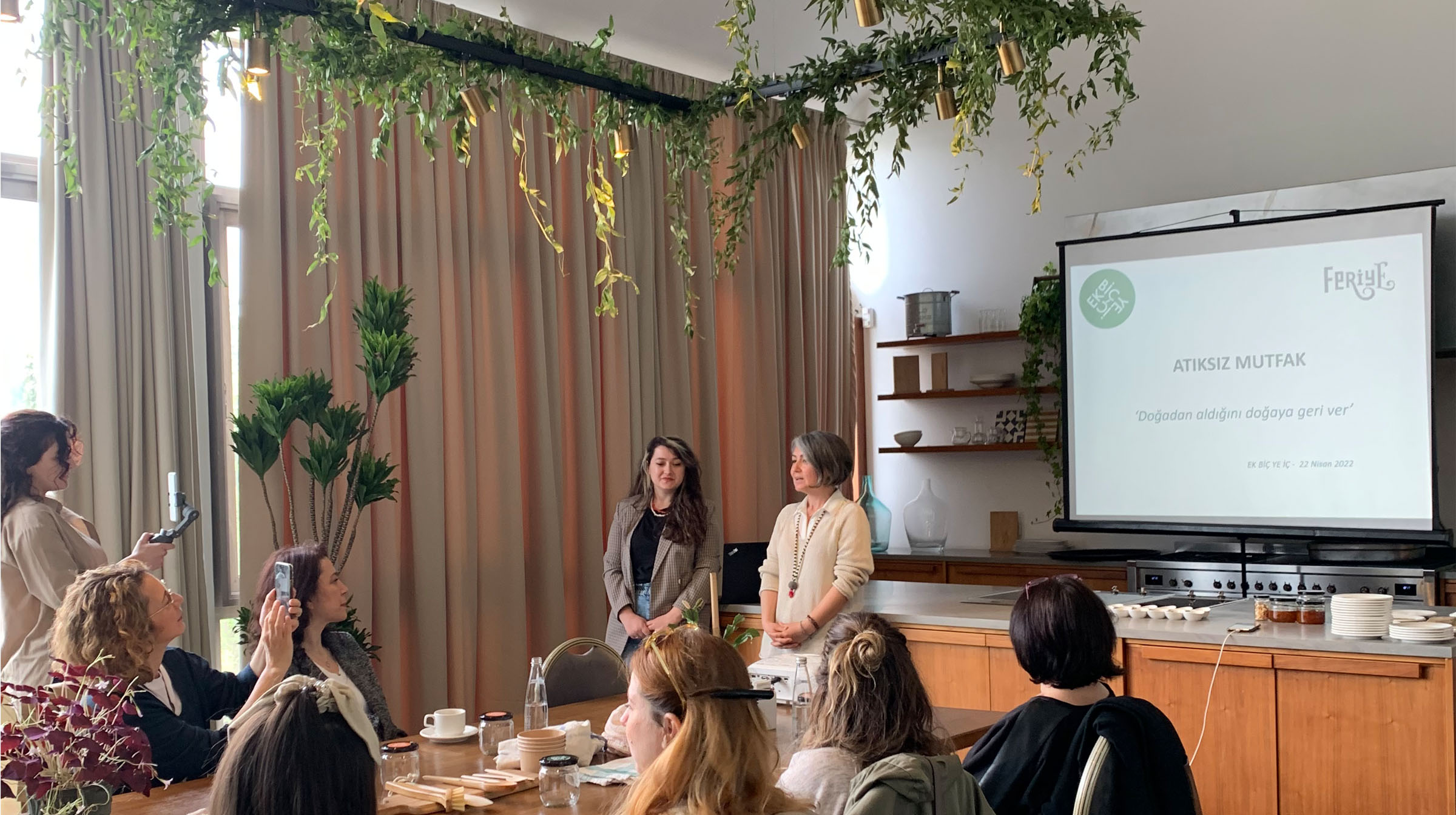
Urban Farming & Rural Eating:
Zero-Waste Kitchen
⬟ 2 hours
⬟ Face to Face
⬟ Maximum 12 participants
⬟ Fee: 3,200TL + VAT + Materials
⬟ What is permaculture
⬟ Zero waste concept
⬟ The 5 Rs of Sustainability
⬟ Applications that can prevent waste in the kitchen
⬟ Seasonal nutrition
⬟ Evaluate waste
⬟ Compost
⬟ Bokashi compost
Implementation: Bokashi Compost. Lemon confit with waste lemon peels, one of our Waste Free Kitchen recipes.
Feriye -Atıksız Mutfak Atölyesi 2022
Yuzu Green Fest 2022
Bugusto -Atıksız Mutfak Atölyesi 2022
Hope Alkazar Atıksız Mutfak Atölyesi
Bahçeşehir Üniversitesi – Gastronomi ve Mutfak Sanatları Bölümü-Şefler için Kentsel Tarım
USLA – Kentsel Tarım Eğitimi
TED- Kentsel Tarım Eğitimi
Bilgi Üniversitesi Gastronomi ve Mutfak Sanatları Bölümü-Şefler için Kentsel Tarım
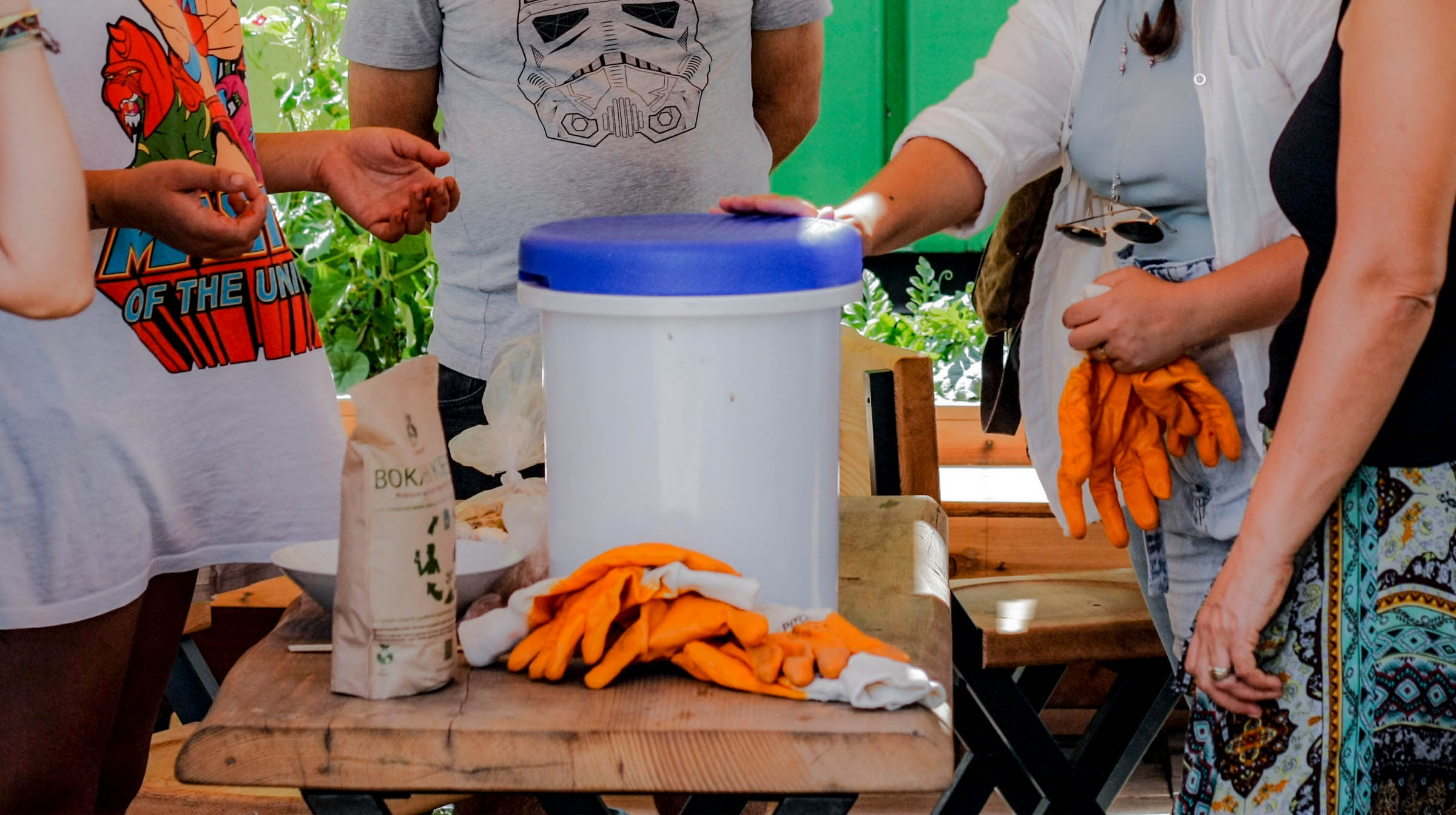
Urban Farming & Rural Eating:
Bokashi Compost
⬟ 90 minutes
⬟ In person, theory + practıce
⬟ Maximum 12 participants
⬟ Fee: 2,400TL + VAT + Materials
⬟ What is bokashi
⬟ Beneficial microorganisms
⬟ Why bokashi compost
⬟ Effective Microorganism production
⬟ Bokashi bucket making
⬟ Using Bokashi bucket
⬟ Bokashi compost
⬟ Bokashi serum
Implementation: A bokashi bucket will be made and serum will be prepared together with the trainer, based on all the explanations.
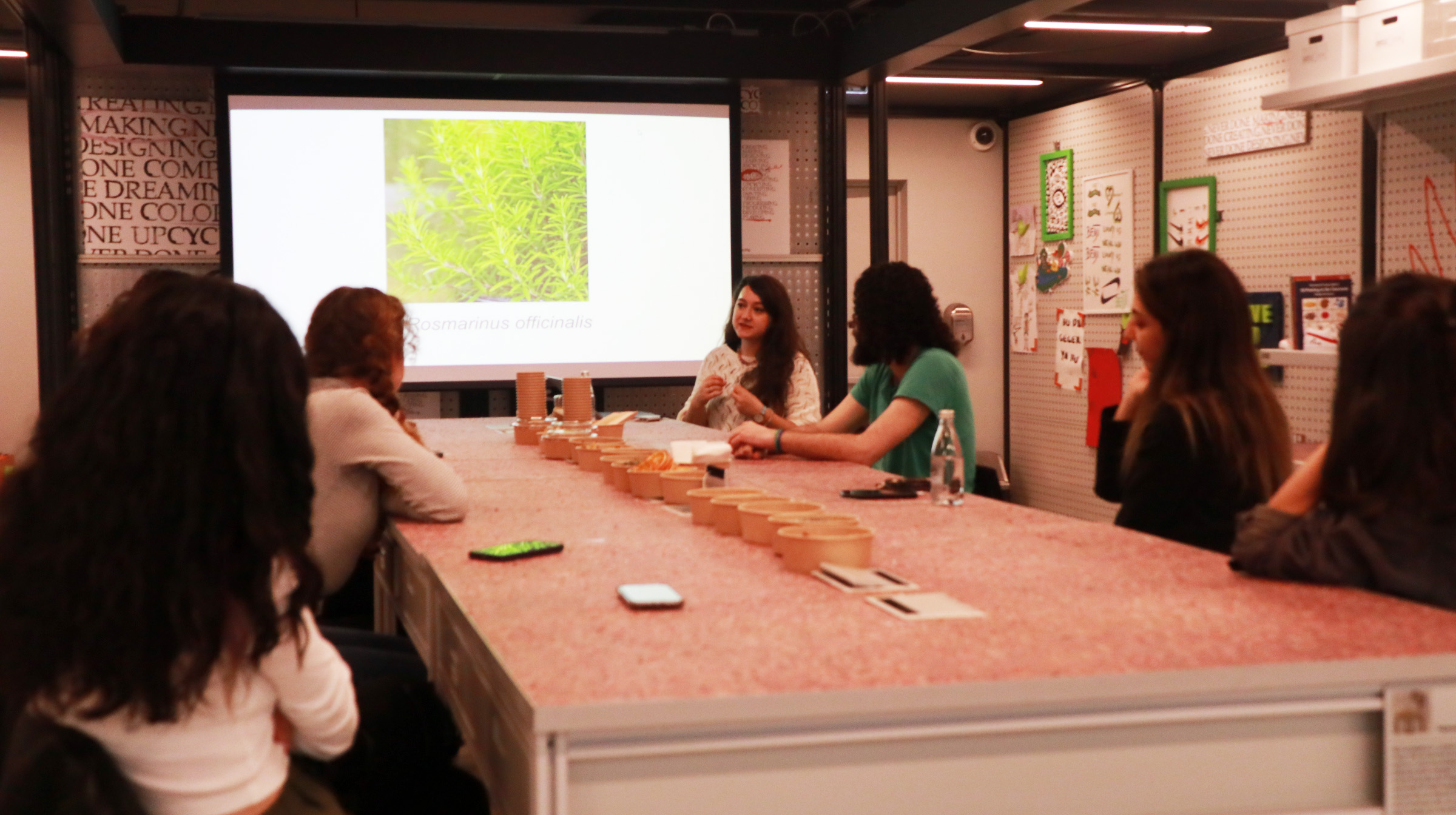
Urban Farming & Rural Eating:
Medicinal Herbs and Tea
⬟ 90 minutes
⬟ In person, theory + practıce
⬟ Maximum 12 participants
⬟ Fee: 2,400TL + VAT
⬟ What are medicinal and aromatic plants
⬟ What are the medicinal lice we can grow in the city
⬟ What is a drug
⬟ Preparation of drugs
⬟ How is tea prepared
⬟ Practical keys we should pay attention in preparing tea
Implementation: Together with the participants, we will examine medicinal plants and create our own tea.


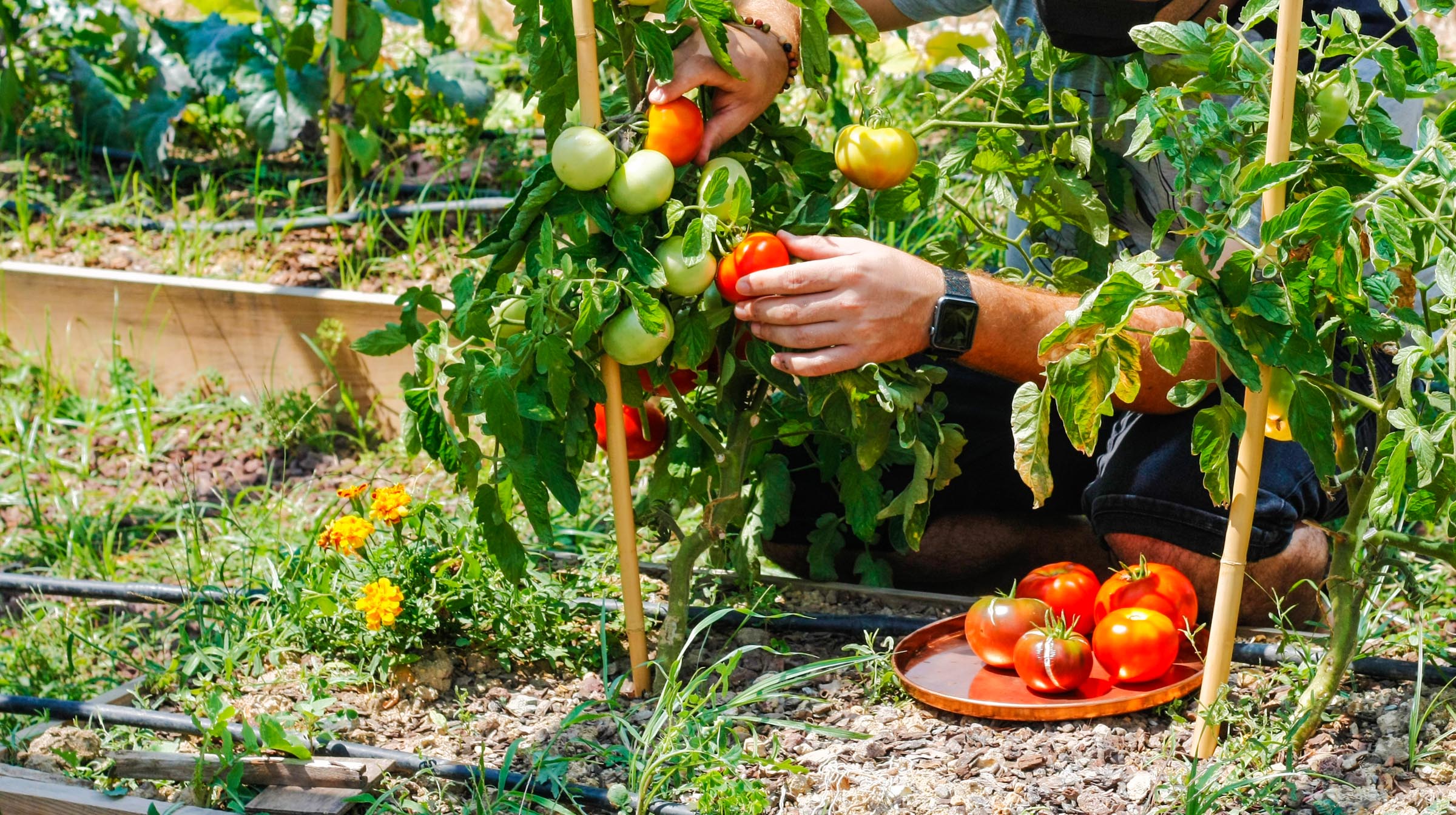
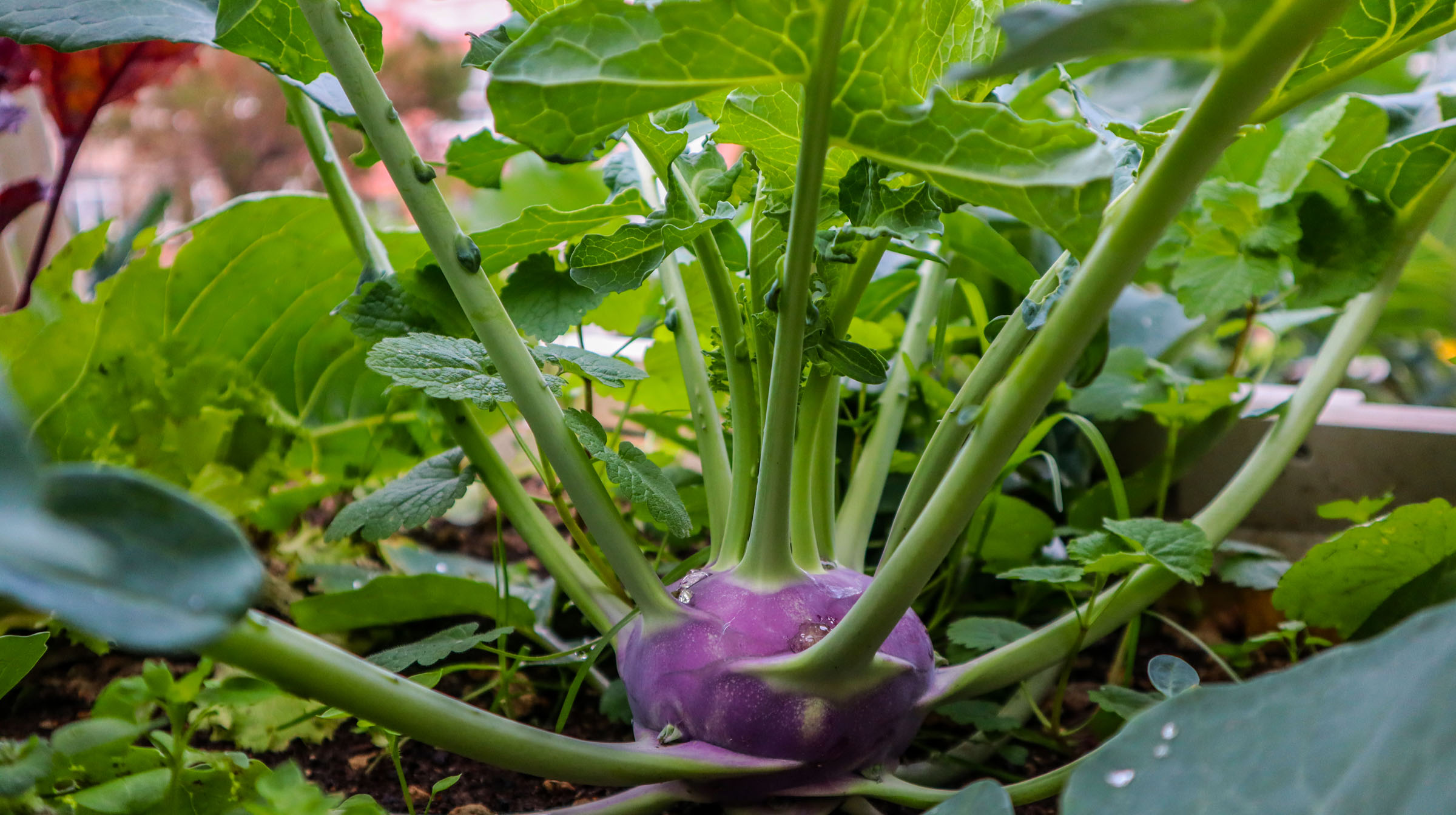
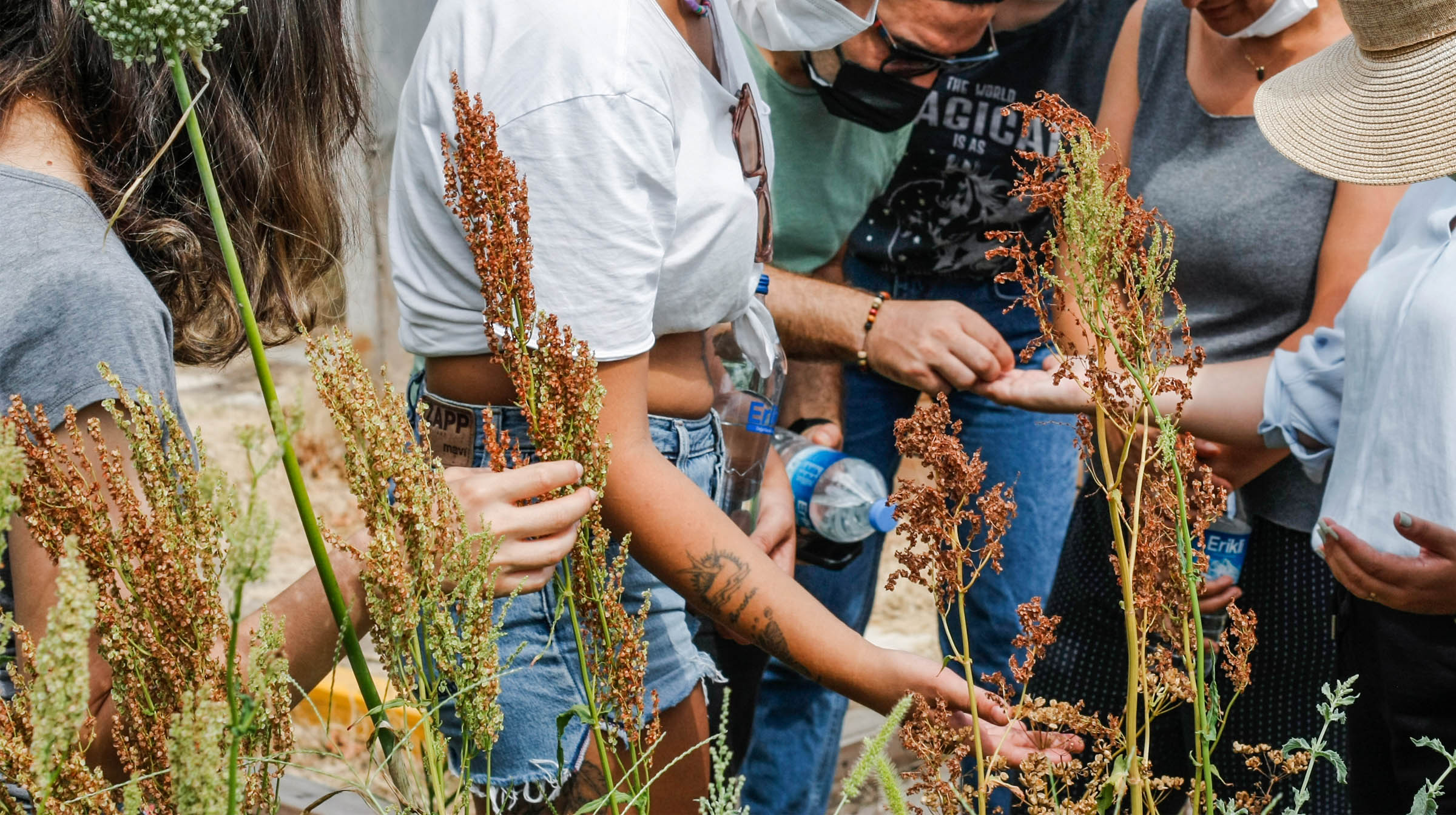
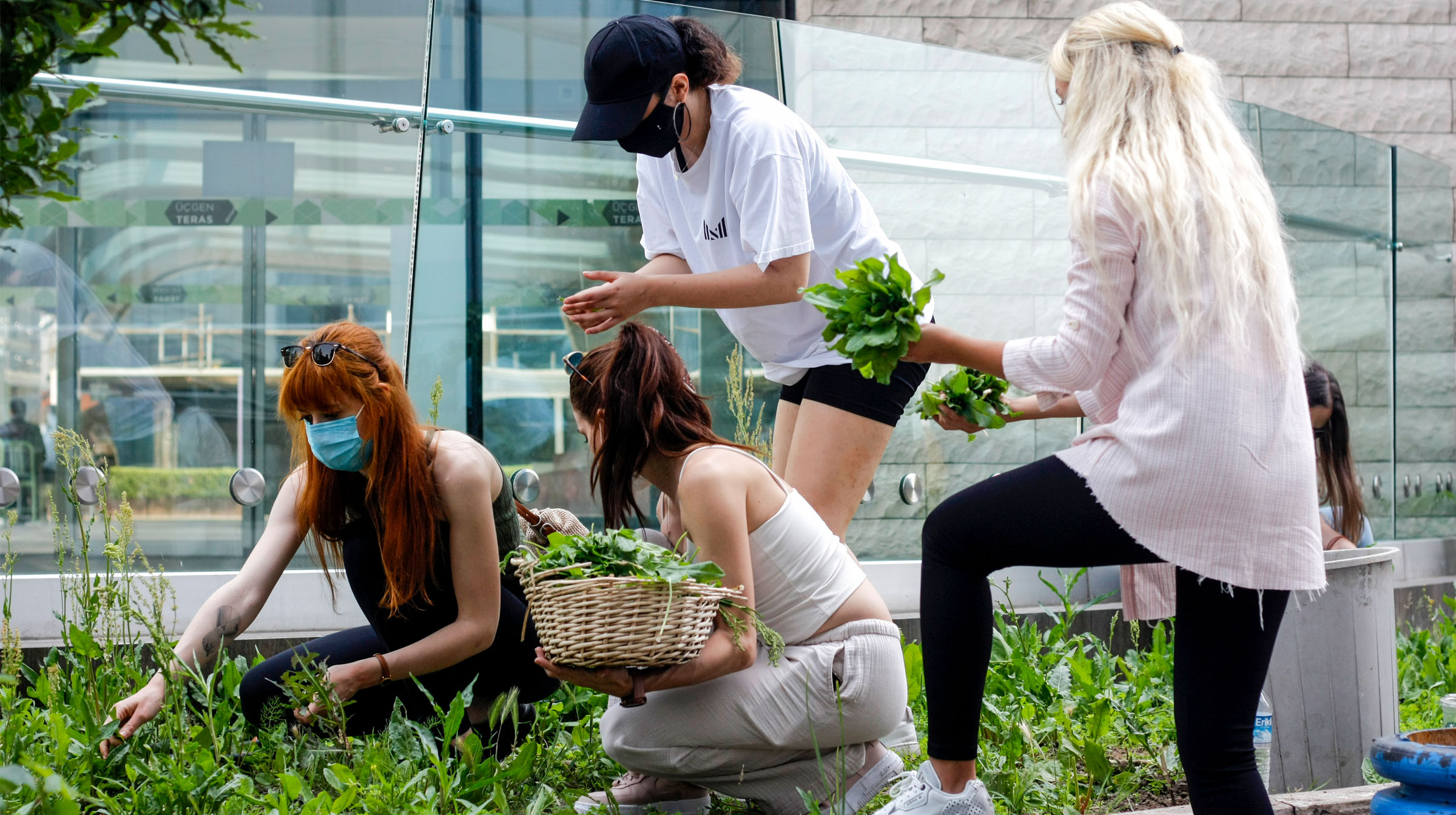
Please follow us on Instagram to hear about our upcoming workshops.
Our workshops are based on our experience accumulated over the past eight years running indoor and outdoor urban farms of various scales, and serving farm-to-bowl food in our eateries with a zero-waste mission. While we still keep experimenting and learning, we also are more than happy to share our know-how. We know that our dream of leading a healthy, enjoyable, and sustainable life in our big city can only come true when a large enough portion of the population living here starts making informed choices every day...
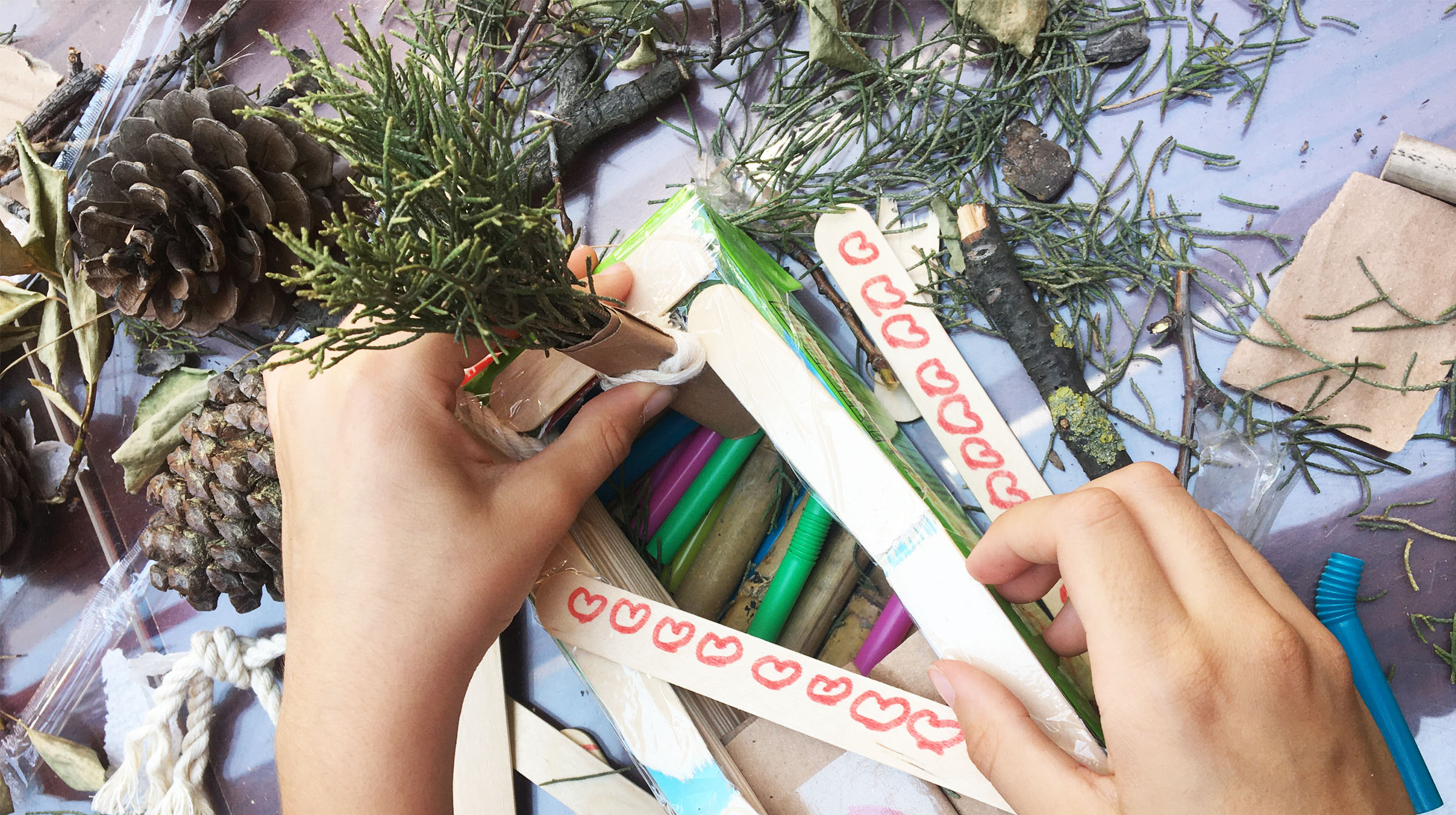
Insect Hotel
In the city, adults are scared of insects. Or disgusted. But kids are much more open minded and curious. Insects are certainly a indispensable part of a vibrant ecosystem. In farming, they play a crucial role as pollinators or predators of pests. This workshop is about communicating this message with a fun and certainly useful activity of building an "insect hotel."
⬟ 15 minutes theory + 25 minutes practice
Face to Face
⬟ Age: 6-9 years old
⬟ maximum 12 participants
⬟ Fee: 2,800TL + VAT
⬟ A brief intro into the world of insects
⬟ Natural habitats of insects
İBB Yeşil İstanbul
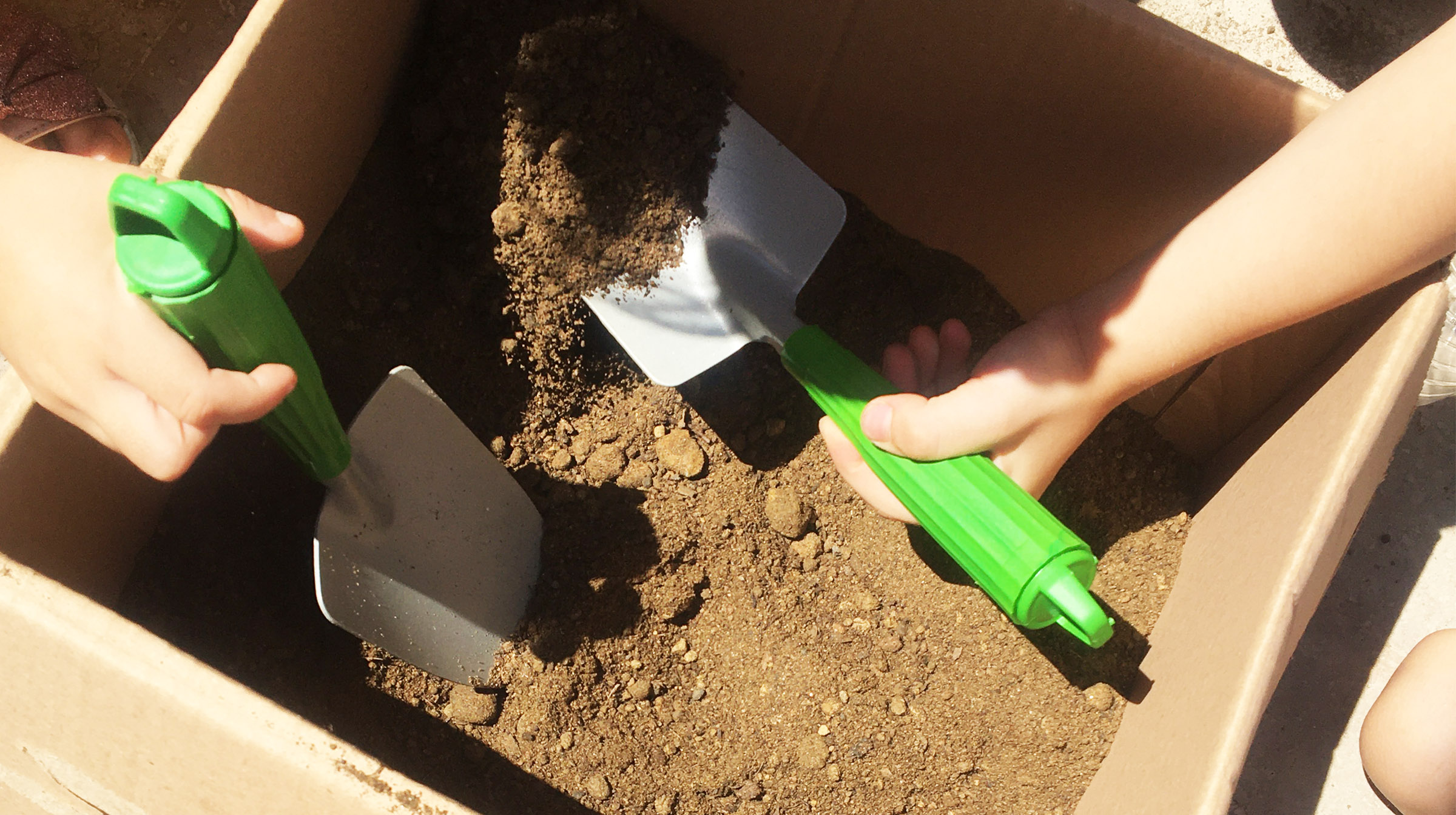
Seed Ball
There is something mischievous in dropping something on the ground, intentionally, maybe while nobody is looking... In this case, however, it's something quite harmless--on the contrary, if done correctly, it brings an explosion of life into a small patch of land. While having fun making those seed balls, we talk about what a seed is, how it germinates, and eventually grows into a plant that feed us.
⬟ 15 minutes theory + 25 minutes practice
⬟ Face to Face
⬟ Age: 6-9 years old
⬟ maximum 12 participants
⬟ Fee: 2,800TL + VAT
⬟ A brief peek into the miracle of seeds
⬟ Examples of different seeds
⬟ Seeds’ germination process and plant growth
İBB Yeşil İstanbul
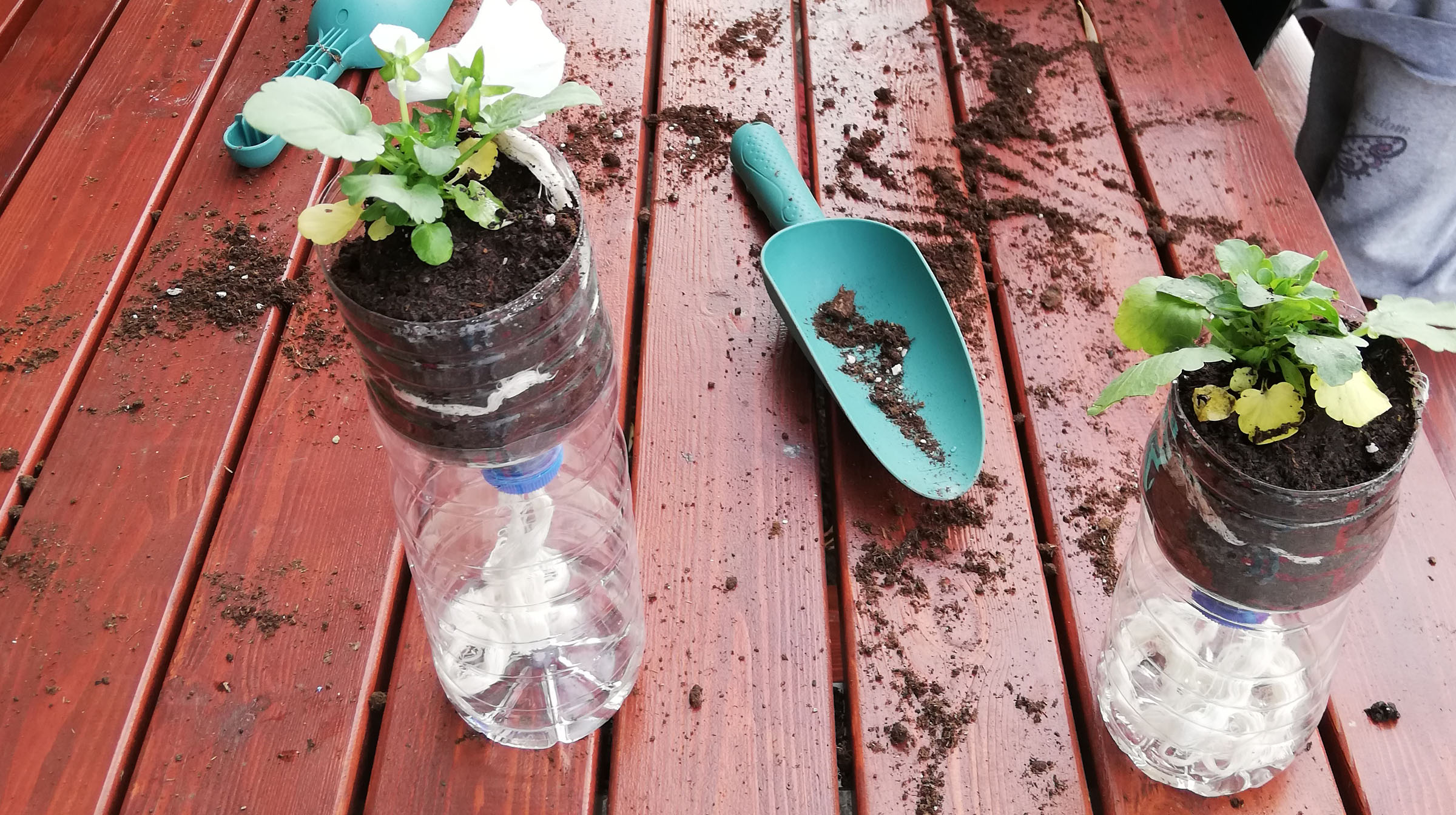
Self-Watering Pot
We are consuming too much beverage in plastic bottles. Some of those bottles are getting recycled, but certainly not all. In this workshop, we turn plastic bottles into self-watering pots to grow edible plants. We don't think we can solve the plastics problem this way, but hope we can create some awareness on the possibilities of up-cycling as well as on the need for avoiding plastic bottles in the first place...
⬟ 15 minutes theory + 25 minutes practice
⬟ Face to Face
⬟ Age: 6-9 years old
⬟ maximum 12 participants
⬟ Fee: 2,800TL + VAT
⬟ Plastic islands
⬟ Recycling and upcycling
⬟ Growing edible plants
İBB Yeşil İstanbul

